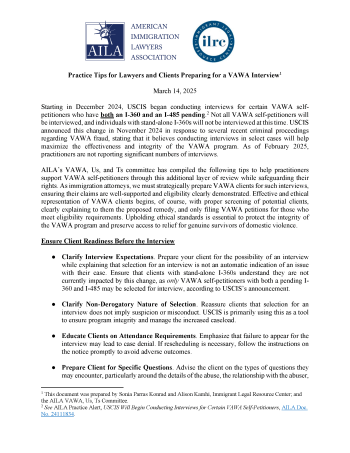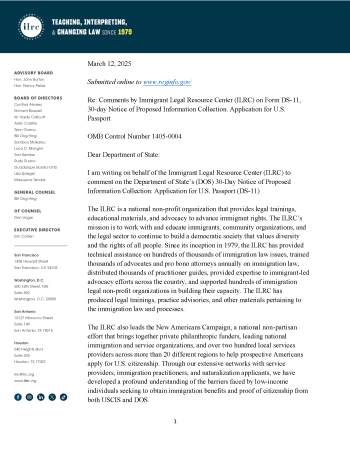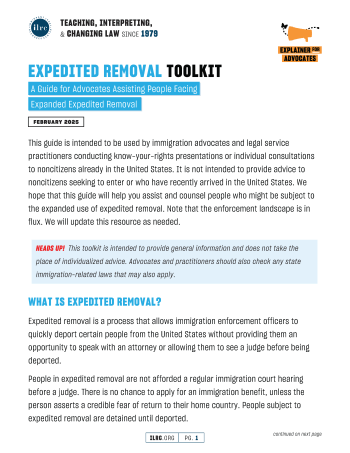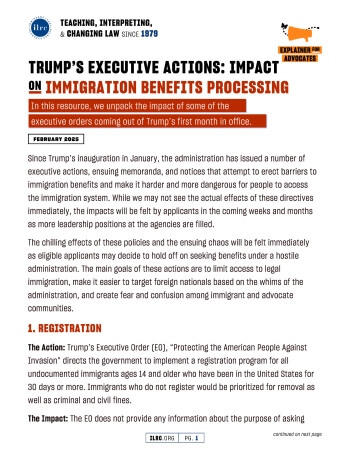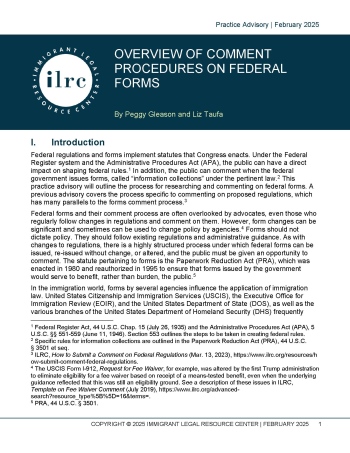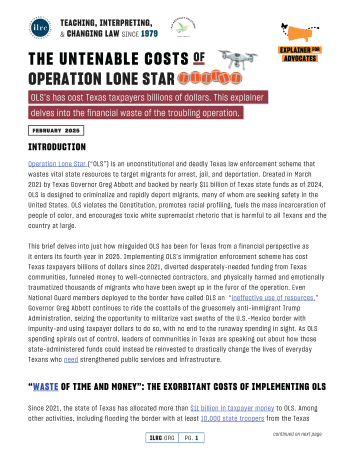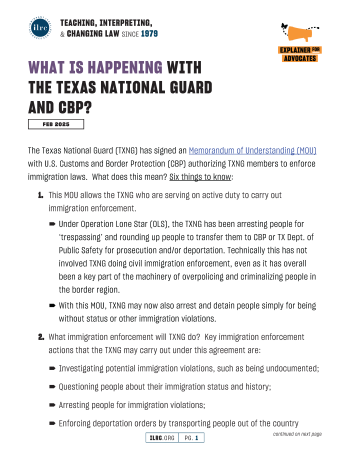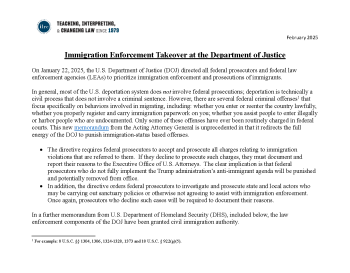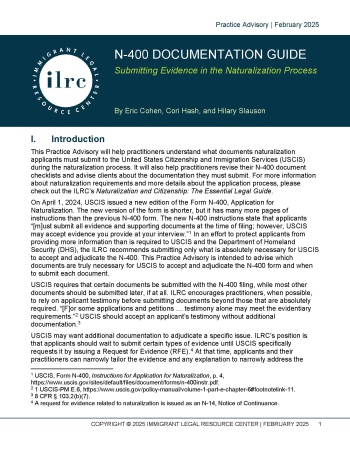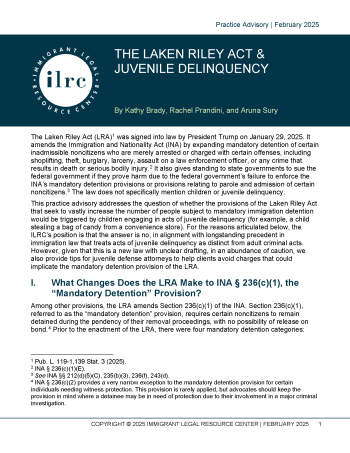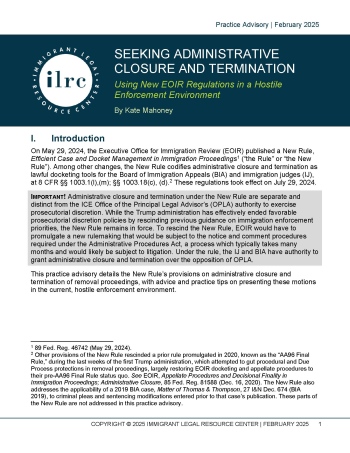The Immigrant Legal Resource Center (ILRC) immigration attorneys’ expertise focuses on family-based immigration, humanitarian relief, naturalization and citizenship, immigration enforcement, and removal defense.
Since 1979 we have helped expand the immigration expertise of attorneys, nonprofit staff, criminal defenders, and others assisting immigrant clients.
In addition to authoring the ILRC’s practice manuals, our expert attorneys have been published by Continuing Education of the Bar (CEB), American Immigration Lawyers Association (AILA), ILW.com, Huffington Post, Sargent Shriver National Center on Poverty Law, Center for Law and Social Policy, The Hill, LexisNexis Emerging Issues, and Fox News Latino.
We have also provided training to National Council of Juvenile and Family Court Judges, National Association of Criminal Defense Lawyers, American Immigration Lawyers Association (AILA), American Bar Association Commission on Immigration, Federal Bar Association, The State Bar of California, Legal Aid Association of California, Judicial Council of California and more.
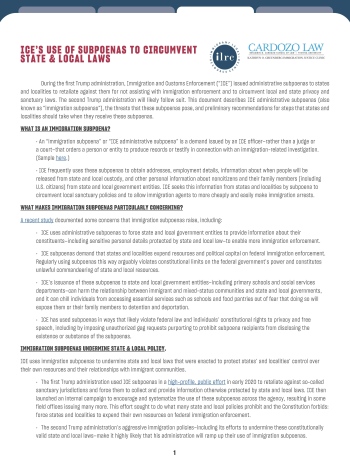
Permission to live and work in the United States
Eligibility for certain public benefits
Right to travel within the United States and abroad
Your green card is proof of your status. If you lose it or it expires, you are still a permanent resident. Permanent Residence is a status—only an immigration judge can take away your permanent residence. Permanent residents should carry their green card (or at a minimum a copy of it).
While the notice says you should depart immediately, you may be entitled to pursue applications for immigration benefits or the right to stay. Many people who have already filed applications or are in court have permission to remain in the U.S. while those cases are pending. In some instances, these notices were issued in error. If you have received this notice, you should speak to a trusted immigration legal services provider about your options.
On April 14, 2025, a federal judge blocked the termination of parole for those that came under a parole program from Cuba, Haiti, Nicaragua, or Venezuela, for those whose parole was terminated with a general notice without any reasons that are specific to your case. If you fit this category and received a generic notification by email or through your USCIS online account, your parole remains valid. If you are not sure whether you fit this category, speak with a trusted legal services provider. Stay in touch with a trusted legal organization, there will be updates.
